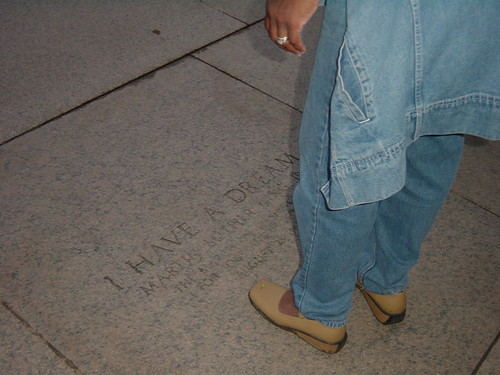Chris Hayes, Victor LaValle, Ayana Mathis, Michael Chabon, and George Saunders discuss the political stories we tell, the construction of artifice, and Saunders’ assertion that trust and authenticity are the only drivers of a voice that works in both poetics and politics.
Post Category → Commonplace Book
Wouldn’t that be freaky?

“Look at it another way. We’re here. We’re nice guys. We’re doing O.K. But we know that in X number of years, we won’t be here, and between now and then something unpleasant is gonna happen, or at least potentially unpleasant and scary. And when we turn to try and understand that, I don’t really think the humanist verities are quite enough. Because that would be crazy if they were. It would be so weird if we knew just as much as we needed to know to answer all the questions of the universe. Wouldn’t that be freaky? Whereas the probability is high that there is a vast reality that we have no way to perceive, that’s actually bearing down on us now and influencing everything. The idea of saying, ‘Well, we can’t see it, therefore we don’t need to see it,’ seems really weird to me.”
George Saunders, “George Saunders Has Written the Best Book You’ll Read This Year”
Kafka meets Costco in the Amazon
These images from inside Amazon‘s vast warehouse(s?) are something between a dream and a nightmare, a mix between a Costco and Kafka.
“I have a dream” at Lincoln Memorial

“I have a dream” at Lincoln Memorial, originally uploaded by morrowplanet.
The Lincoln Memorial in Washington is one of my three or four favorite places on earth.
Watching people, not a few with tears in their eyes, stand on the stone where Rev. Dr. Martin Luther King Jr. gave his famous “I have a dream” speech is one powerful reason why.
Sagan again
Carl Sagan:
What an astonishing thing a book is. Across the millennia, an author is speaking clearly and silently inside your head, directly to you. Writing is perhaps the greatest of human inventions, binding together people who never knew each other, citizens of distant epochs. Books break the shackles of time.
2009, Wa[i]ved
Publishing’s suicide
Jesse Kornbluth from PW:
Book publishing has been trying to commit suicide for all the decades I’ve been writing, and now it’s finally getting some traction on that project. Its latest folly is ironic: one of our most antitechnology businesses now places unrealistic hopes on technology as a savior, a textbook case of an American industry’s unwillingness to make significant changes until one minute before doomsday. I don’t expect more from publishing than stabs of experimentation until business gets much, much worse.
Yay for impartiality in book reviewing!
I just wonder…
A. O. Scott, writing in the NYT:
“And just as the iPod has killed the album, so the Kindle might, in time, spur a revival of the short story. If you can buy a single song for a dollar, why wouldn’t you spend that much on a handy, compact package of character, incident and linguistic invention? Why wouldn’t you collect dozens, or hundreds, into a personal anthology, a playlist of humor, pathos, mystery and surprise?”
Vigorous, versatile, zestful
Alfred Bester:
Deliver science fiction from any necessity to have purpose and value. Science fiction is far above the utilitarian yardsticks of the technical minds, the agency minds, the teaching minds. Science fiction is not for Squares. It’s for the modern Renaissance Man…vigorous, versatile, zestful…full of romantic curiosity and impractical speculation.
(Via)
